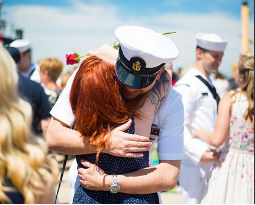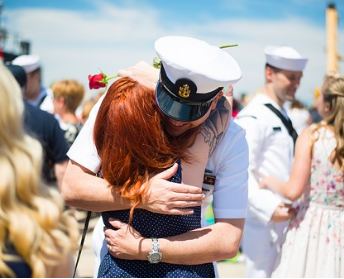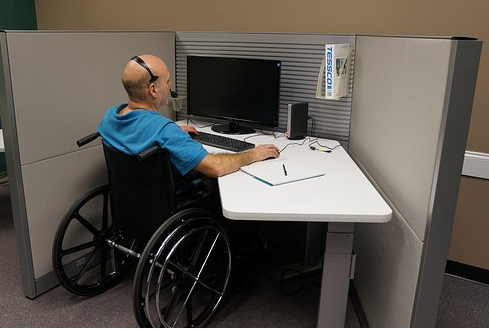The Correlation between the PTSD of Veterans and Addiction


The men in boots around the world make a lot of sacrifices to serve their countries. When in the military as a soldier, serving your country means putting your life on the front line. As a result, readjusting to a normal civilian life after service can be challenging, especially if a soldier is exposed to traumatic experiences encountered in the war zones. Traumatic events may include devastating natural disasters, terrorism, war, combat, serious injuries, and witnessing death, just to name a few. These are among the common triggers of PTSD or Posttraumatic Stress Disorder suffered by our veteran brothers and sisters. They sometimes have to live with these challenges for the rest of their lives if not well treated.
PTSD Effects
The effects of PTSD can be even worse. Often, most veterans turn to drugs, alcohol, and substance use to cope with the disturbing PTSD symptoms, and this can easily result in addiction. Also, they may quite often feel unsafe no matter where they go or what they do, which consequently ends up affecting their day-to-day lives negatively. In some cases, the situation ends up affecting the veteran’s partner financially, emotionally, and sometimes even physically. If this is something you can relate to, the folks at iRecover recommend seeking help for your spouse by speaking to an addiction expert. It takes understanding addiction, seeking help, empowering yourself, and encouraging your partner to seek help.
Also, military departments in many countries have established programs for veterans’ PTSD treatment. For example, the United States Department of Veteran Affairs offers treatment to veterans suffering from co-occurring addiction and PTSD, so recovery hopes are possible.
The following post will seek to highlight some correlations between the PTSD of veterans and addiction.
1. Permanent Injury and Chronic Pain
During combat operations, the common results to expect are injuries to servicemen and women. Some veterans will return from war zones with lost limbs, back pain, chronic headaches, and the list go on. In most of these cases, doctors prescribe opioids for pain treatment. But hang on, even if Opioids such as OxyContin and Vicodin have proven successful in treating pain, they are extremely addictive, making veterans prone to their addiction.

2. Domestic Problems
Post-traumatic disorder and addiction may cause domestic problems in families. Veterans suffering from PTSD have issues with developing communication, trust, closeness, or good problem-solving skills in their relationships. For example, they may not know how to respond to the other partner appropriately.
Additionally, memories, flashbacks, mood swings, aggression, and isolation linked with PTSD combined with drug addiction can escalate domestic problems – the veteran struggling with PTSD may be left alone with feelings of isolation and depression. To prevent the worst-case scenario with domestic issues, Baker Act lawyers can help the veteran get the appropriate treatment and legal considerations as well.
3. Homelessness
According to a survey carried out by the 100,000 Homes Campaign, three-quarters of homeless veterans reported having a drug and substance disorder. Also, in 2014, a report by the Substance Abuse and Mental Health Services Administration reported that one out of five veterans in addiction treatment was homeless. Therefore you clear that homeless veterans are haunted by PTSD, thus turning to drug and alcohol addiction to reduce the symptoms.
4. Criminal and Legal Challenges
Since World War II, there has been an increased incarceration rate of military veterans across the world after every major war. Surprisingly, most of these incarcerations are closely linked to instances of PTSD and addiction. Additionally, from 1946 to 1949, about 34% of new prison admissions in eleven U.S prisons were war veterans. Also, the declaration of war against drugs in 1971 made service members returning home from the Vietnam War at risk of incarceration, which consequently led 21% of men in all state’s prisons and 23% of men in federal prisons to be war veterans. This validates the correlation between PTSD of veterans and addiction to criminal and legal challenges.
5. Acute Stress Disorder
Acute stress disorder may occur as a result of a traumatic encounter, and the symptoms being similar to those ones of PTSD. Nevertheless, these symptoms may occur between three days and one month after the traumatic event. Most combat veterans suffer acute stress disorders. They may have disturbing flashbacks and nightmares that make them numb and detached from themselves. As a matter of fact, acute stress is a major cause of distress and problems for many combat veterans. To make it even worse, studies have shown that about half of individuals with acute stress disorder go on to become PTSD victims.
The highlighted above are some of the correlations between the PTSD of veterans and addiction. Remember, I am talking about men and women who sacrifice their lives to uphold and protect the country’s constitution. We should all feel obligated to stand with them whenever they are going through addictions of Post-traumatic Stress Disorders. We should understand them and, most importantly, help them get the right treatment for them to have a normal life even after a traumatic encounter.





